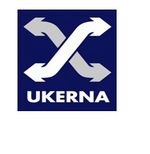Difference between revisions of "UKERNA"
MarkDilley (talk | contribs) (minor WikiGnome location edit) |
|||
| Line 22: | Line 22: | ||
}} | }} | ||
| − | '''UKERNA ''' | + | '''UKERNA''' (United Kingdom Education and Research Networking Association) is the trading name for '''JNT Association''', a non-profit company funded by [[JISC]] to manage and develop the UK national research network backbone'''JANET''', a computer network connecting the research and educational organizations in UK as well as the research and education networks in other Europe, United States and the Far East.<ref>[http://www.bbc.co.uk/dna/h2g2/alabaster/A6227417 bbc.co.uk]</ref> |
| + | |||
| + | UKERNA is also known as '''JANET (UK)'''. | ||
| + | |||
| + | ==History== | ||
| + | In 1970, the United Kingdom Computer Board commissioned Professor Mike Wells to lead the working parties to write a report about the situation of networking between the educational institutions in the country known as the '''Wells Report'''. In his report, Prof. Mike Wells made two recommendations. First, to create a national research network that would link the university computing centers. Second, the Computer Board should establish a small, full-time unit to coordinate and guide the organizations that are principal recipients of funds from the Department of Education and Science that are involved in the development of the network.<ref>[http://wn.com/UKERNA wn.com]</ref> | ||
| + | |||
| + | As a result of the Wells Report, the '''Network Unit''' was created on November 1, 1976 until October 31, 1978. It is a three member small, full time unit which visited and observed the 50 universities within UK to obtain a comprehensive view of the actual situation within the data communications and to understands the needs of users and service providers.<ref>[http://wn.com/UKERNA wn.com]</ref> | ||
==References== | ==References== | ||
Revision as of 01:57, 31 May 2011
| Type: | Non-Profit |
| Industry: | Internet |
| Founded: | 1994 |
| Founder(s): | Higher Education Funding Councils for England, Scotland & Wales, Office of Science & Technology |
| Headquarters: | JANET(UK), Lumen House, Library Avenue Harwell Oxford, Didcot, Oxfordshire OX11 0SG |
| Country: | UK |
| Website: | JA.net |
| LinkedIn: | UKERNA |
| Key People | |
| Tim Marshall, CEO | |
UKERNA (United Kingdom Education and Research Networking Association) is the trading name for JNT Association, a non-profit company funded by JISC to manage and develop the UK national research network backboneJANET, a computer network connecting the research and educational organizations in UK as well as the research and education networks in other Europe, United States and the Far East.[1]
UKERNA is also known as JANET (UK).
History
In 1970, the United Kingdom Computer Board commissioned Professor Mike Wells to lead the working parties to write a report about the situation of networking between the educational institutions in the country known as the Wells Report. In his report, Prof. Mike Wells made two recommendations. First, to create a national research network that would link the university computing centers. Second, the Computer Board should establish a small, full-time unit to coordinate and guide the organizations that are principal recipients of funds from the Department of Education and Science that are involved in the development of the network.[2]
As a result of the Wells Report, the Network Unit was created on November 1, 1976 until October 31, 1978. It is a three member small, full time unit which visited and observed the 50 universities within UK to obtain a comprehensive view of the actual situation within the data communications and to understands the needs of users and service providers.[3]
